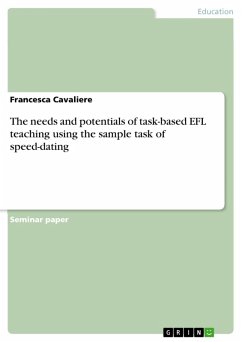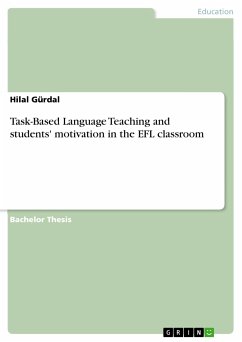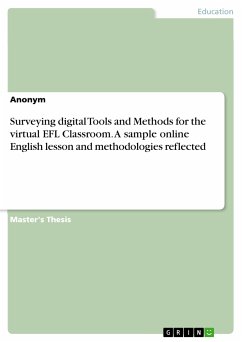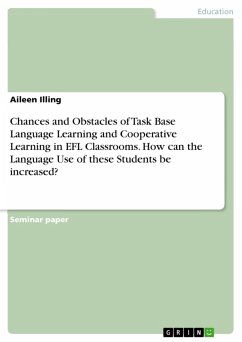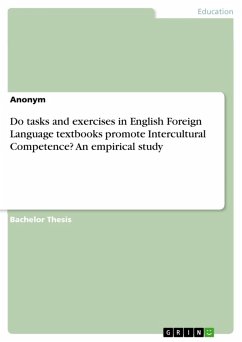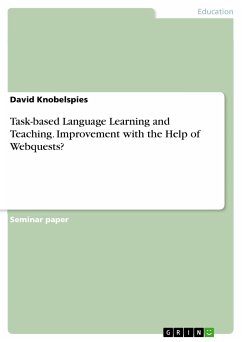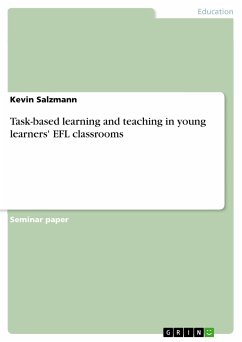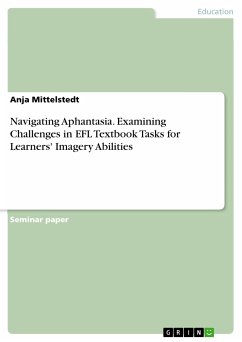Seminar paper from the year 2014 in the subject Didactics for the subject English - Pedagogy, Literature Studies, grade: 1,3, University of Potsdam (Englisch Fachdidaktik), course: Methods in EFL teaching, language: English, abstract: Until the late 1960s it was assumed that the ability to communicate in a foreign language would be exclusively based on the knowledge of grammar rules and vocabulary. The 1970s, however, saw a major shift in focus away from form to meaning. This basic insight led to the emergence of Communicative Language Teaching (CLT) in the 1980s which until now serves as an umbrella term for a number of approaches, valuing communicative competence higher than linguistic knowledge. Among the strongest versions of CLT, there is Task-Based Language Teaching (TBLT) which basically promotes the use of tasks as the core unit of foreign language teaching (cf. Larsen-Freeman, 2000:121). Accordingly, it will be the aim of the present paper to verify whether TBLT is also a valid approach for the EFL classroom and how this can be justified in terms of current teaching objectives and learners' needs. The first section of the paper will provide the theoretical background to TBLT. It will be relevant here to compare different definitions of the term task, in order to identify useful criteria that help to distinguish a task from the concept of an exercise. Moreover, the functions and interrelations of a few selected types and components of tasks shall be discussed. In the second section, the focus will be put on factors to consider when implementing task-based language learning in EFL. For this purpose, the main principles of TBLT will be portrayed drawing on the potential assets and drawbacks of the approach. It will be relevant here to answer the following controversial questions related to TBLT: 1. How to avoid that the focus on "authentic" communication is done at the expense of formal accuracy? 2. How does TBLT affect teacher and learner roles in a TBLT classroom? 3. How can tasks be used to assess what learners can do in the L2? Finally, there will be provided a sample lesson of TBLT. This lesson is built around a speed-dating activity and is designed for grade 11/1. An attempt shall be made here to analyze how the lesson relates to the formerly defined criteria of TBLT and how this meets the latest standards of the official curriculum of Brandenburg for ESL at upper secondary school level.
Dieser Download kann aus rechtlichen Gründen nur mit Rechnungsadresse in A, B, BG, CY, CZ, D, DK, EW, E, FIN, F, GR, HR, H, IRL, I, LT, L, LR, M, NL, PL, P, R, S, SLO, SK ausgeliefert werden.
Hinweis: Dieser Artikel kann nur an eine deutsche Lieferadresse ausgeliefert werden.

